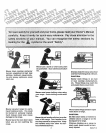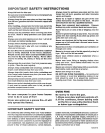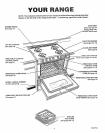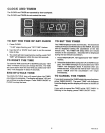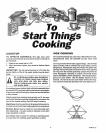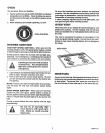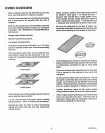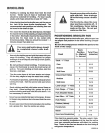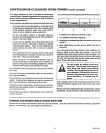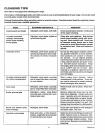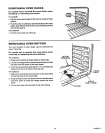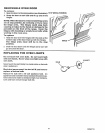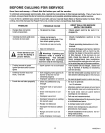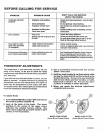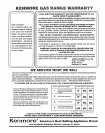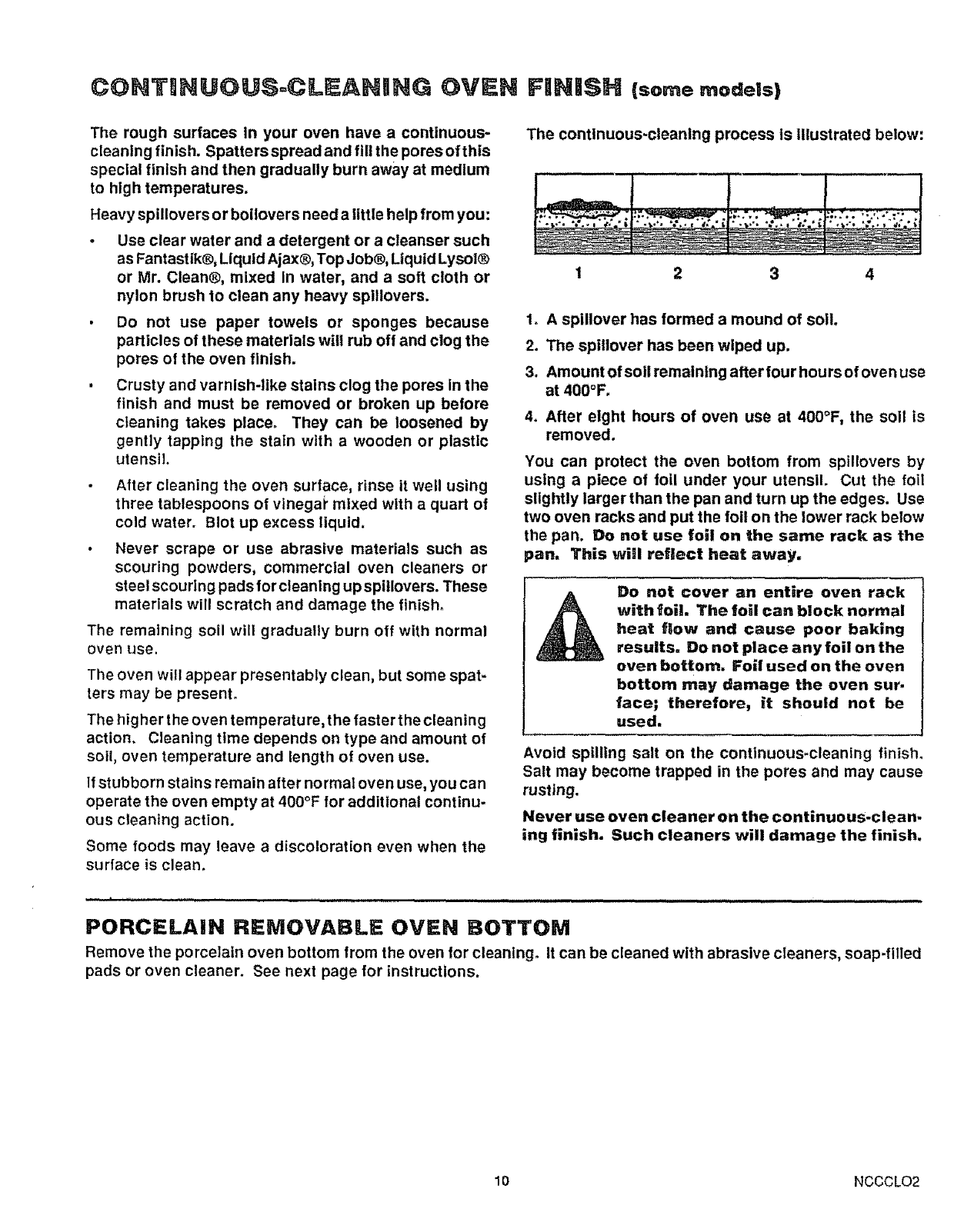
The rough surfaces In your oven have a continuous-
cleaning finish. Spatters spread and fill the pores ofthls
special finish and then gradually burn away at medium
to high temperatures.
Heavy spillovers or boilovers need a little help from you:
Use clear water and a detergent or a cleanser such
as Fantastik®, Liquid Ajax®, Top Job®, Liquid Lysol®
or Mr. Clean®, mixed In water, and a soft cloth or
nylon brush to clean any heavy spillovers.
• Do not use paper towels or sponges because
particles of these materials will rub off and clog the
pores of the oven finish.
Crusty and varnish-like stains clog the pores in the
finish and must be removed or broken up before
cleaning takes place° They can be loosened by
gently tapping the stain with a wooden or plastic
utensil.
After cleaning the oven surface, rinse it well using
three tablespoons of vlnegaP mixed with a quart of
cold water. Blot up excess liquid.
• Never scrape or use abrasive materials such as
scouring powders, commercial oven cleaners or
steel scouring pads for cleaning up spitlovers. These
materials will scratch and damage the finish.
The remaining soil will gradually burn off with normal
over use.
The oven will appear presentably clean, but some spat-
ters may be present.
The higher the oven temperature, the faster the cleaning
action. Cleaning time depends on type and amount of
soil, oven temperature and length of oven use.
If stubborn stains remain after normal oven use, you can
operate the oven empty at 400°F for additional continu-
ous cleaning action.
Some foods may leave a discoloration even when the
surface is clean,
The continuous-cleaning process is lllustrated below:
1. A spillover has formed a mound of soil.
2. The spillover has been wiped up.
3. Amount of soli remaining after four hours of oven use
at 400°F.
4. After eight hours of oven use at 400°F, the soil is
removed.
You can protect the oven bottom from spillovers by
using a piece of foil under your utensil. Cut the foil
slightly larger than the pan and turn up the edges. Use
two oven racks and put the foil on the lower rack below
the pan. Do not use foil on the same rack as the
pan. This witl reflect heat away,
Do not cover an entire oven rack
with foil. The foil can block normal
heat fSow and cause poor baking
results. Do not place any foil on the
oven bottom. Foil used on the oven
bottom may damage the oven sur.
face; therefore, it should not be
used•
Avoid spilling salt on the continuous-cleaning finish.
Salt may become trapped in the pores and may cause
rusting.
Never use oven cleaner on the continuous-clean,
ing finish, Such cleaners will damage the finish.
PORCELAIN REMOVABLE OVEN BOTTOM
Remove the porcelain oven bottom from the oven for cleaning. It can be cleaned with abrasive cleaners, soap-filled
pads or oven cleaner. See next page for instructions.
10 NCCCL02



